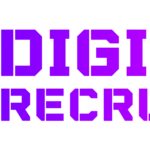The Remote Revolution: How Hybrid and Remote Work are Crushing the Traditional Talent Game
Remember the days of the office water cooler, the commute in rush hour traffic, and the boss lurking over your shoulder? Well, move over cubicle farms, because the future of work is remote and hybrid, and it’s shaking up the talent acquisition and HR game like a disco ball in a mosh pit.

But hold on, before you throw out your stapler and trade your power suit for pajamas, let’s unpack why this shift is happening and how it’s impacting the way we recruit, manage, and retain talent.
The Rise of the Remote Revolutionaries:
The pandemic was the first domino, forcing us all to embrace Zoom meetings and virtual collaboration. But even before COVID-19, a seismic shift was already brewing. A study by Owl Labs found that 74% of employees now want to work remotely at least part-time, and a staggering 98% desire some level of remote flexibility in their future careers. Why? Well, it’s simple:
- Flexibility and work-life balance: No more battling rush hour or sacrificing personal time for long commutes. Remote work empowers individuals to find a rhythm that suits their lives, boosting morale and productivity.
- Global talent pool: Bye-bye, geographical limitations! Companies can now tap into a worldwide pool of talent, regardless of location, unlocking a treasure trove of diverse skills and perspectives.
- Cost savings: Say goodbye to expensive office leases and hello to reduced overhead costs. Remote and hybrid models allow companies to shrink their physical footprint and invest those resources into technology and employee well-being.
Rewriting the Talent Acquisition Playbook
With this shift, the way we attract and hire talent is undergoing a metamorphosis. Gone are the days of resume-driven recruiting and generic job postings. Here’s the new playbook:
- Skills over location: Job descriptions are evolving to focus on skills and competencies rather than proximity to an office. Companies are using AI-powered talent platforms to identify the best candidates, regardless of their zip code.
- Virtual first: Interviews are happening on Zoom, coffee chats are migrating to online platforms, and even onboarding is embracing remote-first strategies. Companies are investing in video conferencing tools, collaboration software, and digital onboarding platforms to create seamless virtual experiences.
- Candidate experience is king: In a competitive talent market, the candidate experience is everything. Companies are crafting engaging virtual interviews, providing clear communication, and offering glimpses into their remote work culture to attract and retain top talent.
HR in the Hybrid Hot Seat
But the revolution doesn’t stop at recruitment. HR teams are also facing the heat, evolving from office gatekeepers to remote work champions. Here’s how HR is adapting:
- Building a culture of connection: Remote work can lead to isolation, so HR is fostering virtual team-building activities, online social events, and mentorship programs to keep employees connected and engaged.
- Performance management reimagined: Regular one-on-ones, clear communication expectations, and results-oriented performance reviews are crucial in a remote setting. HR is helping managers adjust their approach to ensure effective feedback and development opportunities.
- Well-being on the agenda: Remote work can blur the lines between work and personal life. HR is prioritizing employee well-being by offering mental health resources, flexible work schedules, and training on time management and productivity hacks.
To add some real-world spice to the mix, let’s hear from a few HR and talent acquisition experts:
- “The talent wars are fiercer than ever, and companies that embrace remote and hybrid models are the ones winning the battle for top talent,” says Sarah Jones, CEO of a leading recruitment agency.
- “Remote work is not just about location; it’s about trust and empowerment,” emphasizes David Lee, Head of HR at a tech startup.
- “Building a thriving remote culture requires intentionality. We need to invest in the right tools, create opportunities for connection, and prioritize employee well-being,” advises Lisa Brown, a renowned HR consultant.
The Takeaway
The remote and hybrid work revolution is not a fad; it’s a tectonic shift in the way we work. Companies that embrace this change, adapt their talent acquisition and HR strategies, and prioritize employee well-being will be the ones who thrive in the future of work.
